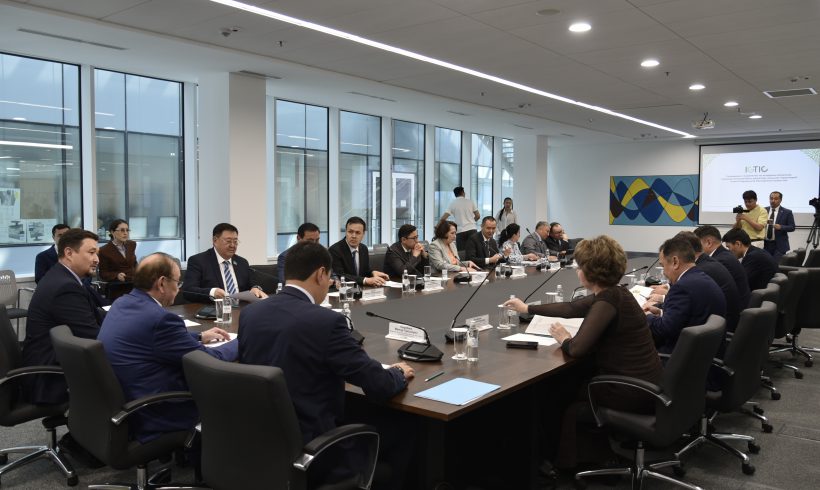Today, Members of the Senate Committee on Agrarian Issues, Environmental Management, and Development of Rural Areas of the Parliament of the Republic of Kazakhstan held a meeting with the leadership of the Ministry of Ecology and Natural Resources of the Republic of Kazakhstan and the International Center for Green Technologies and Investment Projects (IGTIPC) as part of preparations for the upcoming Government Hour on the topic: “On the implementation of the Environmental Code of the Republic of Kazakhstan in terms of state incentives for attracting green investments and promoting the widespread use of Best Available Techniques (BAT).”
The meeting was attended by representatives of the authorized state body, heads of major industrial companies, industry associations, and the scientific community.
One of the key highlights was the reminder about the financial consequences for enterprises that fail to transition to the system of Integrated Environmental Permits (IEP) within the established timeframe.
Starting in 2025, the 50 largest enterprises are required to implement BAT and obtain a IEP.
From 2031, the requirement will apply to all Category I enterprises.
Failure to comply will result in a gradual increase in environmental fees — by 2, 4, and 8 times every three years, making delays economically unjustifiable.
Saken Kalkamanov, Chairman of the Management Board of IGTIPC, delivered a detailed report presenting the Center’s achievements:
Conducted over 100 technological audits,
Developed 20 BAT reference documents, including 7 unique ones with no equivalents in the EU,
Implemented the Registry of Green Technologies, which currently includes 38 solutions in the fields of renewable energy, water purification, waste recycling, and eco-transport.
During the meeting, companies that have already initiated the transition to IEP shared their experience. In particular, JSC “Qarmet” and JSC “NAC “Kazatomprom” presented their roadmaps and confirmed their commitment to introducing BAT as part of their sustainable development strategies.
Special attention was given to industries currently lacking BAT reference documents — such as livestock, food production, and others. Participants emphasized that without these documents, these sectors risk facing social and regulatory challenges. The initiative of IGTIPC to expedite technological audits in priority areas received broad support.
The outcome of the meeting was the consolidation of efforts between the government, business, and the expert community toward advancing an environmentally safe, economically efficient, and technologically sustainable industrial policy in Kazakhstan.




















